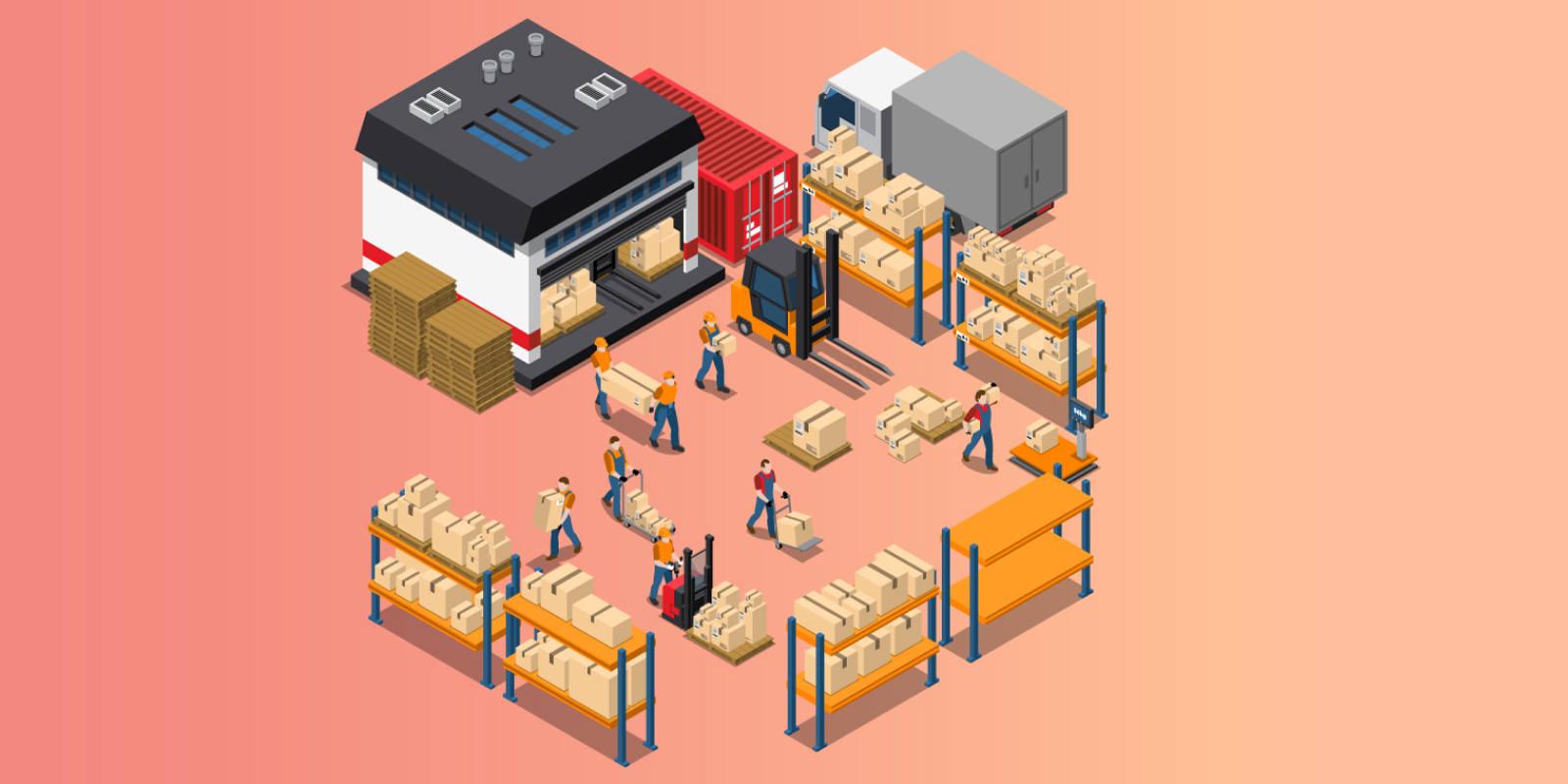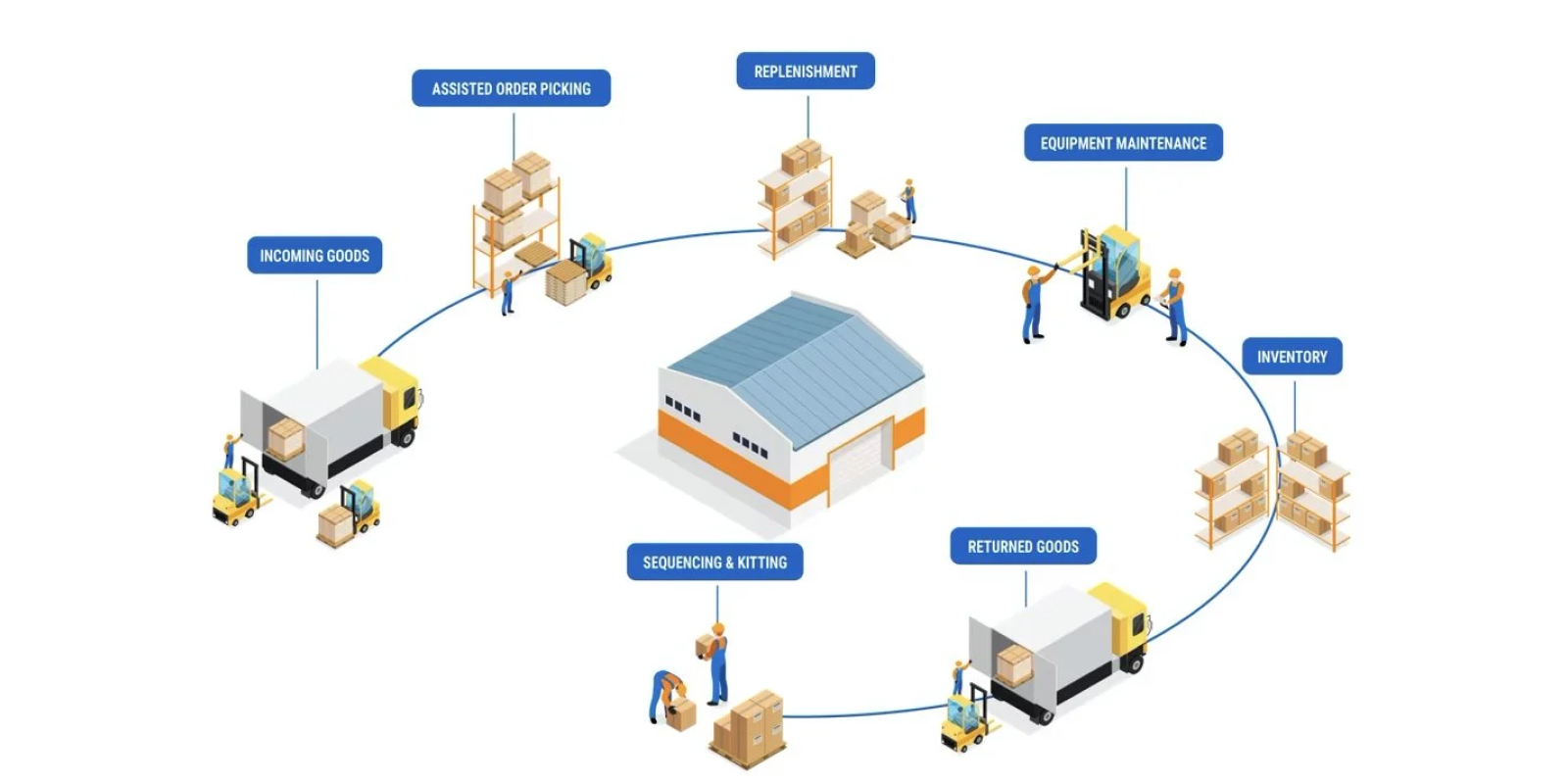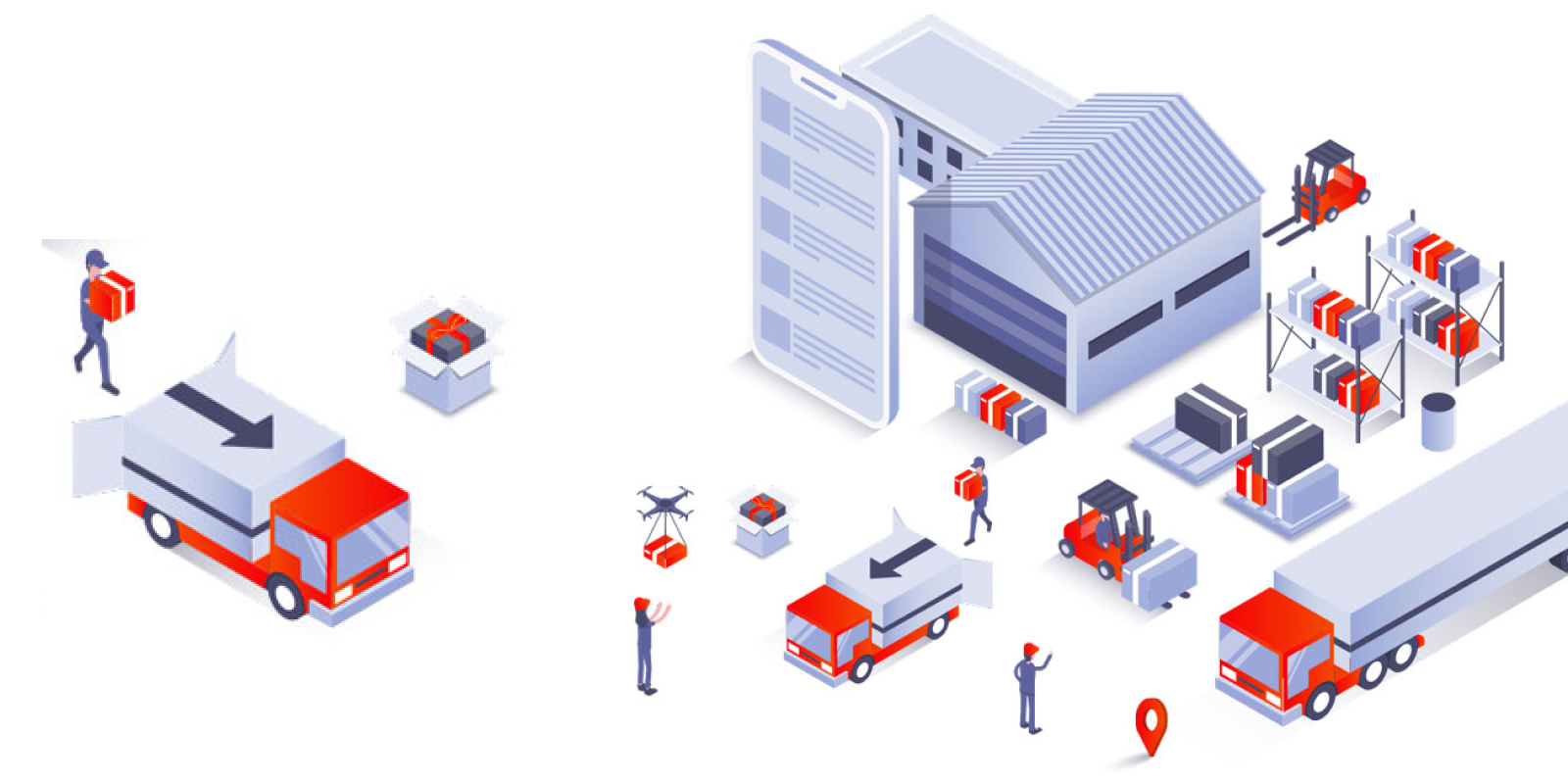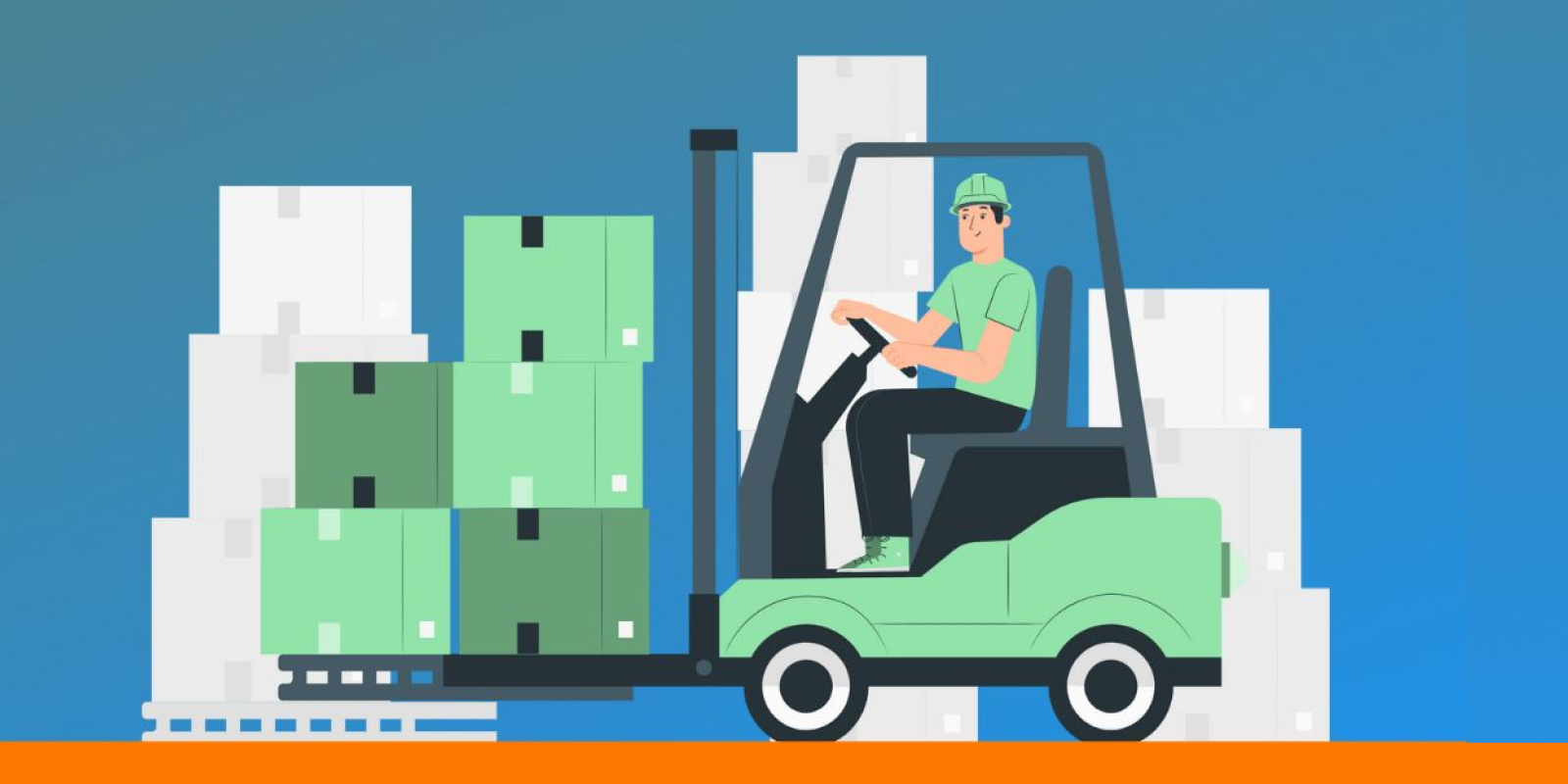Date: 2024-08-12
Logistics: What It Means and How It is Useful in Business

In the fast-paced world of commerce, where the global marketplace is at our fingertips, the significance of logistics cannot be overstated. Logistics serves as the lifeblood of businesses, seamlessly connecting suppliers, manufacturers, distributors, and customers. In this official Oswal Logipark blog, we will delve into what logistics truly means and explore its indispensable role in the success of businesses worldwide.
Defining Logistics
At its core, logistics is the comprehensive process of planning, implementing, and controlling the efficient flow and storage of goods, services, and information from the point of origin to the point of consumption. It encompasses a myriad of activities, including transportation, inventory management, warehousing, packaging, and even information and communication management.
Logistics aims to ensure that the right product reaches the right place at the right time in the right condition, all while optimizing costs and enhancing customer satisfaction. In essence, it's about managing the intricate web of interconnected activities that keep the wheels of commerce turning smoothly.
The Key Components of Logistics
1. Transportation
Transportation is the visible face of logistics, involving the movement of goods from one location to another. Whether it's by road, rail, air, or sea, the choice of transportation mode depends on factors such as the nature of the goods, distance, cost, and urgency. Efficient transportation is critical for meeting customer expectations and maintaining a competitive edge.
2. Warehousing
Warehousing plays a pivotal role in logistics by providing a centralized location for storing goods. This ensures a constant and timely supply of products to meet market demand. Modern warehouses are equipped with advanced technologies, such as automation and robotics, to optimize storage space, reduce errors, and enhance overall efficiency.
3. Inventory Management
Effective inventory management is the art of finding the right balance between having enough stock to meet demand and avoiding excess stock that ties up capital. Through careful forecasting, businesses can minimize stockouts and overstock situations, thereby reducing costs and maximizing profitability.
4. Packaging
Packaging is not just about aesthetics; it's a crucial aspect of logistics that ensures the safe and secure transportation of goods. Proper packaging protects products from damage during transit, minimizes waste, and contributes to a positive brand image.
5. Information and Communication
In the digital age, information and communication are integral components of logistics. Real-time tracking, data analytics, and communication technologies facilitate efficient decision-making and help businesses adapt to dynamic market conditions. The ability to share accurate and timely information across the supply chain is essential for streamlined operations.
The Importance of Logistics in Business
1. Cost Efficiency
Logistics directly impacts the cost structure of a business. By optimizing transportation routes, minimizing inventory holding costs, and streamlining processes, businesses can significantly reduce operational expenses. This cost efficiency translates into a more competitive pricing strategy, enabling businesses to attract more customers and increase market share.
2. Customer Satisfaction
In the era of e-commerce and on-demand services, customers expect timely deliveries and impeccable service. A well-organized logistics system ensures that products reach customers on time and in optimal condition. This reliability contributes to customer satisfaction and loyalty, fostering long-term relationships that are invaluable for sustained business success.
3. Market Expansion
Logistics is a facilitator of market expansion. By establishing efficient supply chain networks, businesses can reach new markets and capitalize on emerging opportunities. This strategic expansion not only increases revenue streams but also diversifies risk, making the business more resilient to market fluctuations.
4. Adaptability to Change
In today's volatile business environment, adaptability is a key differentiator. Logistics, with its emphasis on real-time data and efficient communication, enables businesses to respond swiftly to market changes. Whether it's adjusting production schedules, rerouting shipments, or revising inventory levels, logistics provides the agility necessary for thriving in dynamic industries.
The Future of Logistics: Embracing Innovation
As Oswal Logipark, our vision forecasts the future of logistics intertwined with technological innovation. Emerging technologies such as artificial intelligence, the Internet of Things (IoT), blockchain, and autonomous vehicles are reshaping the logistics landscape.
1. Artificial Intelligence (AI)
AI is revolutionizing logistics by enhancing predictive analytics, demand forecasting, and route optimization. Machine learning algorithms can analyze vast amounts of data to identify patterns and trends, enabling businesses to make data-driven decisions that optimize efficiency and reduce costs.
2. Internet of Things (IoT)
The IoT is connecting physical devices, vehicles, and machines, creating a network that can communicate and share data in real-time. In logistics, IoT devices provide visibility into the supply chain, enabling businesses to track the location and condition of goods throughout the entire journey.
3. Blockchain
Blockchain technology is transforming supply chain transparency and security. By creating a decentralized and tamper-proof ledger, blockchain ensures the integrity of data related to the origin, movement, and ownership of goods. This not only reduces the risk of fraud but also enhances trust among stakeholders.
4. Autonomous Vehicles
The use of autonomous vehicles, including drones and self-driving trucks, is gaining traction in logistics. These vehicles offer the potential for faster and more cost-effective deliveries, especially in situations where human intervention may be limited or impractical.
Conclusion
In conclusion, logistics is the unsung hero of business operations, ensuring that products traverse the complex journey from production to consumption seamlessly. Its multifaceted nature, encompassing transportation, warehousing, inventory management, packaging, and information flow, makes it a cornerstone of success for modern enterprises.
As businesses navigate an increasingly interconnected and competitive global marketplace, the role of logistics becomes more pronounced. The ability to adapt to technological advancements and embrace innovative solutions will be the driving force behind the future success of businesses in the logistics realm. In essence, logistics is not merely a support function; it's the backbone that sustains and propels the entire business ecosystem forward.



